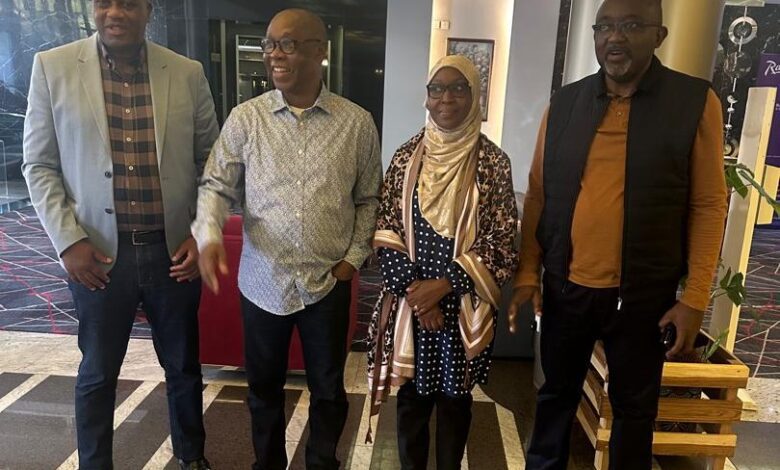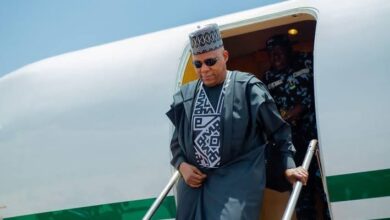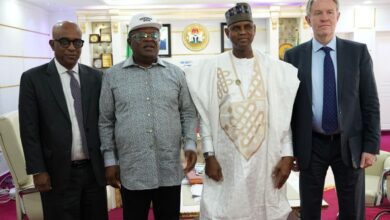NEITI Urges Regional Collaboration On Domestic Resource Mobilisation, Energy Transition
By Sunday Etuka, Abuja

The Nigeria Extractive Industries Transparency Initiative (NEITI) has called for closer collaboration and partnerships among English and Lusophone member countries of the Extractive Industries Transparency Initiative (EITI) in Africa.
NEITI said, the goal was to boost revenue generation, address budget deficits, and mitigate the debt burden that many sub-Saharan African countries face under the EITI framework on Domestic Resource Mobilization (DRM).
The agency’s Deputy Director/Head Communications and Stakeholders Management, Mrs. Obiageli Onuorah in a statement on Monday quoted Dr. Orji Ogbonnaya Orji, the Executive Secretary of NEITI and National Coordinator of EITI in Nigeria, to have emphasized that the recently concluded Lusaka meeting set the stage for enhanced collaboration among EITI implementing countries in Africa, particularly in the areas of domestic resource mobilization, climate change, and energy transition.
“The shared commitment to transparency, accountability, and innovative approaches will be crucial in driving economic development and addressing the challenges posed by the evolving global energy landscape,” Dr. Orji stated.
“The EITI implementation community in Nigeria remains open to peer learning and sharing opportunities for innovation.” Dr Orji maintained.
Dr. Orji urged EITI member countries to fully embrace Domestic Resource Mobilization, develop strategic partnerships to enhance revenue generation, diversify their economies, and reduce budget deficits. He highlighted the importance of investing in non-oil sectors and creative industries to ensure sustainable economic growth.
Representing Nigeria at the African Regional Meeting in Lusaka, Dr. Orji, alongside Dr. Erisa Danladi Sariki, the Civil Society Organization (CSO) Representative on the NEITI Board, played vital roles as guest speakers and resource persons.
Dr. Orji used the platform to outline Nigeria’s strategic plans to diversify its economy, with a particular focus on developing the solid minerals sector, advancing gas commercialization, and liberalizing the oil, gas, and mining sectors through the introduction of investor-friendly legislation.
In his address, Dr. Orji welcomed the ongoing synergy and collaboration between anti-corruption agencies in Nigeria, noting that the regular exchange of information and data among these agencies is already yielding positive results. This collaboration, he emphasized, is crucial for ensuring a more transparent and accountable extractive sector in Nigeria, rebuilding citizens’ trust, and boosting investor confidence.
Dr. Orji also underlined the importance of creating an attractive investment climate to stimulate economic growth. He noted that the opportunities presented by Domestic Resource Mobilization (DRM) are better realized through regional partnerships with countries rich in oil, gas, and mining—a common factor within the EITI community.
The Director for the Africa Region at the International Secretariat of EITI, based in Oslo, Norway, who was present at the Lusaka meeting, stressed the importance of collaboration, innovation, and openness in managing the challenges faced by oil-dependent countries in the context of climate change and the ongoing global energy transition.
The Special Peer Learning Regional Meeting of English/Portuguese Implementation Countries of EITI, which concluded in Lusaka, Zambia, brought together National Coordinators of EITI from West, East, Central, and Southern Africa, as well as development partners, international organizations, and representatives from the oil, gas, and mining sectors.
Delegates from Tanzania, Uganda, Liberia, Ghana, Mozambique, Malawi, Angola Sierra Leone, Congo Democratic Republic, Nigeria and the host nation Zambia were among countries that participated in the weeklong meeting.
The discussions centered on advancing strategies for DRM to enhance revenue generation, support development goals, reduce poverty, and address budget deficits in EITI member countries.





